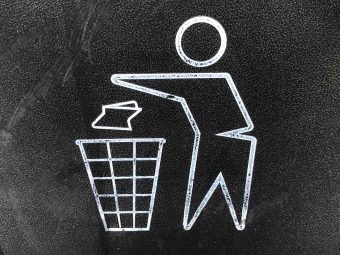
The fact remains that the stability of our planet has been irreversibly damaged and that human civilization has contributed to this state with its activities, especially in terms of energy and resource consumption. Consequently, the world has changed a lot during the last decades.
Awareness of climate change, caused by the negative impacts of our consumer society, has grown rapidly and can be said to have become a global public consciousness. Although the daily desires for shopping and consumption are still present, consumers increasingly consider ethical and environmental issues in their purchasing decisions.
In this way, consumers represent new social expectations that require companies to integrate environmental features and sustainability issues in the research and development of their latest products and business strategies to align their goals with sustainable development goals – environmental, social, and economic. To achieve these goals and convince environmentally conscious consumers to buy a particular product, companies use eco-labels and ecological claims, emphasizing the environmental acceptability of the product or high ethical standards. Ecolabelling is a voluntary procedure for certifying the environmental performance of products or services within a specific category.
IN FOCUS:
- CHARGE&GO PUSHES THE BOUNDARIES OF E-MOBILITY
- ČELINAC GETS TWO SOLAR POWER PLANTS
- EU SUPPORT FOR GREEN TRANSITION PROJECTS IN SERBIA
This way, ecological features and aspects are highlighted, while manufacturers give consumers information about the environmental impacts of their products or services throughout their life cycle. Ecological labelling makes products more recognizable on the market, i.e. it facilitates:
• Informing consumers and facilitating their choice when purchasing. Environmental labelling is an effective way of informing consumers about the environmental impact of the selected product. In this way, consumers can distinguish between products that harm the environment and those that are environmentally acceptable.
• Promotion of economic efficiency. Ecolabelling has lower economic costs than regulatory controls. Thus, it generates benefits for both government and industry.
• Stimulating market development. When consumers choose to buy products with eco-labels, they have a direct impact on the creation of an environmentally friendly/ green market.

• Encouraging continuous improvement. Dynamic environmental markets encourage corporations to commit to continuous environmental improvement of their products or services.
• Promotion of certification. The ecological certification programme proves that products have met specific environmental labels and declaration standards. This way, consumers are provided with visual information about the product and its environmental features. For these reasons, certification has an educational role for consumers while promoting competition among producers.
• Assistance in monitoring. The benefits of official eco-labelling are in validating ecological claims that facilitate monitoring. By doing so, consumers and competitors can better assess the credibility of these manufacturer claims. Environmental labelling encourages sustainability and sustainable development, environmental protection, more efficient use of energy, rational use of non-renewable natural resources, implementation of ecological practices at the state, regional and global levels, preservation of ecosystems and biodiversity, improvement of the waste management system by the implementation of recycling, better management of harmful substances in products, application of cleaner production, development of new, greener production technologies, development of eco-innovations and more straightforward trading in ecological markets.
The International Organization for Standardization ISO and its standards from the ISO 14024 series identifies and defines three types of environmental labels and declarations based on classification: Type I – environmental labels, Type II – self-declared claims and Type III – environmental declaration.
dr Nataša Petrović
Read the story in the new issue of the Energy portal Magazine NATURE CONSERVATION.
